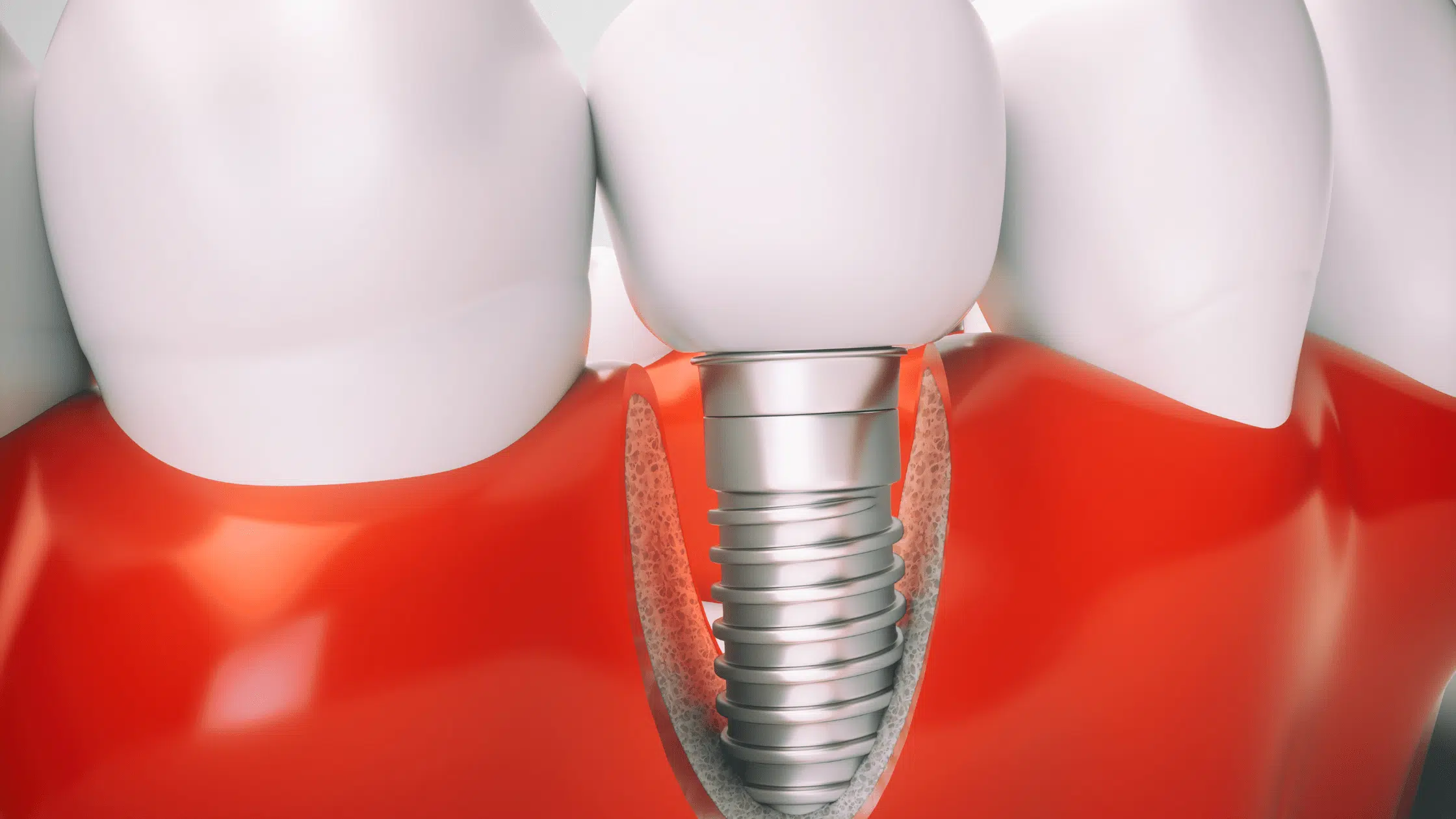Are you tired of dealing with missing or damaged teeth? Dental implants might be the perfect solution for you. However, before you jump into the procedure, it’s essential to understand the factors that influence their success rate. From your overall health to post-op care, several elements can impact the longevity and effectiveness of dental implants. In this blog post, we’ll explore these critical factors and equip you with valuable information to help increase your chances of a successful implant experience.
What are Dental Implants?
Dental implants are a popular and effective way to replace missing teeth. They are usually made of titanium and are inserted into the jawbone to act as an artificial tooth root. A dental implant can be used to support one or more fake teeth. The success rate of dental implants depends on a number of factors, including:
- The type of implant – there are different types of dental implants with slightly different success rates. The most common type is the endosteal implant, which has a success rate of around 95%.
- The health of the patient – generally speaking, healthier patients have a higher success rate with any kind of surgery. This means that patients who don’t smoke and have healthy gums and bones are more likely to have successful dental implants.
- The experience of the surgeon – it’s important to choose a surgeon who is experienced in placing dental implants. This increases the chance that the surgery will be successful and decreases the risk of complications.
- Aftercare – proper aftercare is essential for successful dental implants. This includes things like keeping the area clean, avoiding hard foods, and attending regular check-ups.
Advantages of Dental Implants
Dental implants are a great option for people who have lost one or more teeth due to injury or disease. Here are some of the advantages of dental implants:
- Dental implants are strong and durable. They are designed to last a lifetime with proper care.
- Dental implants look and feel like natural teeth. They function just like your original teeth, so you can eat and drink normally.
- Dental implants can help preserve your facial structure. When you lose teeth, your jawbone begins to deteriorate. Dental implants help stimulate bone growth and prevent bone loss in the jaw.
- Dental implants can improve your overall oral health. Unlike dentures, which can trap food and bacteria, dental implants allow you to brush and floss normally to keep your mouth healthy.
Source: Millions reported problems with dental implants
Factors that Influence Success Rates of Dental Implants
There are a number of factors that can influence the success rate of dental implants. The type of implant, the placement of the implant, and the health of the patient are all important factors.
The type of implant is one of the most important factors. There are two main types of dental implants: endosteal and subperiosteal. Endosteal implants are placed directly into the jawbone, while subperiosteal implants are placed under the gum tissue but on top of the jawbone. Both types have different success rates. Endosteal implants have a higher success rate, but they are also more expensive and require a longer surgery time. Subperiosteal implants have a lower success rate, but they are less expensive and have a shorter surgery time.
The placement of the implant is another important factor. Implants that are placed in the front part of the mouth tend to have a higher success rate than those that are placed in the back part of the mouth. This is because there is more bone in the front part of the mouth, making it easier for the implant to bond with the bone. Additionally, teeth in the front part of the mouth are under less stress than those in the back part of the mouth, so they are less likely to cause problems with the implant.
The health of the patient is also an important factor in determining implant success rates. Smokers tend to have lower success rates than non-smokers because smoking decreases blood.
Age:
The age of the patient is one of the most important factors in the success rate of dental implants. The younger the patient, the higher the success rate. In general, patients under the age of 40 have a 95% success rate, while those over the age of 40 have a success rate of about 85%. However, there are many exceptions to this rule, and some patients in their 60s and 70s have been successful with dental implants. The key is to have healthy gums and bones and to be free of disease.
Quality of Bone:
The quality of your bone is one of the most important factors in the success rate of dental implants. The denser and harder your bone, the better chance you have for a successful implant. There are several ways to measure the quality of your bone, including:
Computed Tomography (CT) scan:
This type of scan uses x-rays to create a three-dimensional image of your bones. It can show how dense and strong your bones are, as well as any areas that may be weaker.
Bone Density Test:
This test uses a special x-ray machine to measure how much calcium is in a small sample of your bones. The more calcium, the denser your bones are.
Periotest:
This test measures the vibrations that pass through your teeth and jawbone. The denser your bones are, the fewer vibrations will pass through.
If you have concerns about the quality of your bone, talk to your dentist or oral surgeon. They will be able to determine if dental implants are right for you.
Surgical Technique:
A variety of surgical techniques are available for placing dental implants, and the success rate of dental implant surgery depends on a number of factors including the type of technique used. The most common type of dental implant surgery is guided surgery, which uses a surgical template or stent to guide the placement of the implant into the prepared site. This technique is less invasive and results in fewer complications than traditional open surgery, and has a higher success rate. Other factors that can influence the success rate of dental implant surgery include the experience of the surgeon, the type of implant used, and the health of the patient.
Maintenance and Care:
Dental implants are a safe and effective way to replace missing teeth. However, as with any other dental procedure, there are certain factors that can influence the success rate of dental implants.
One of the most important factors is the health of the patient. Patients who have good oral hygiene and visit their dentist regularly are more likely to have successful dental implants. Additionally, patients who do not smoke and who have healthy gums are also more likely to have successful dental implants.
Another important factor is the experience of the implant dentist. Dentists who have placed numerous dental implants successfully are more likely to place your implant successfully. Furthermore, it is important to choose a board-certified periodontist or oral surgeon for your procedure to ensure that you receive proper care.
Finally, the type of implant chosen can also affect the success rate of dental implants. Titanium implants are the most common type of implant used and they have a high success rate. However, zirconia implants are a newer type of implant that has been shown to be just as effective as titanium implants.
Disadvantages of Dental Implants
There are a few disadvantages of dental implants to be aware of. First, they are more expensive than other options like bridges or dentures. They also require a surgical procedure for placement, which can have some risks and recovery time associated with it. Additionally, there is always a small chance that the implant could fail and would need to be replaced. But overall, dental implants are a safe and effective option for many people.
Alternatives to Dental Implants
There are a few alternatives to dental implants that your dentist may suggest, depending on your individual case. These include:
-
Dental bridges
A dental bridge is basically a false tooth or teeth, which are held in place by the teeth on either side of the gap. Bridges can be made from gold, alloys, porcelain, or a combination of these materials, and they’re an option if you’re missing one or more teeth. The main disadvantage of dental bridges is that they rely on the neighboring teeth for support, which means those teeth have to be healthy and strong enough to bear the weight. In addition, over time the gum tissue around the base of the bridge can recede, exposing the metal framework and making it more susceptible to decay.
-
Partial dentures
Partial dentures are another option if you’re only missing a few teeth – they fill in the gaps left by your missing teeth and are supported by your natural teeth and gums. They’re usually made from acrylic or metal, and like dental bridges, they can also cause problems with neighboring teeth over time. In addition, partial dentures can be difficult to keep in place and can make eating and speaking somewhat challenging.
-
Full dentures
If you’re missing all your natural teeth, full (upper and lower) dentures are an option. They consist of artificial teeth set into pink plastic bases that fit snugly over your gums.
Conclusion
In conclusion, there are several factors that influence the success rate of dental implants. While some of these factors may be out of our control (such as patient health and age), others can easily be managed with the help of a trained professional. By making sure to pay close attention to each step in the implant process, such as selecting an experienced dentist and following their suggested maintenance routine, we can increase our chances of successful implantation. With proper care and vigilance, we can ensure that our investments in teeth replacements will last for many years to come.

